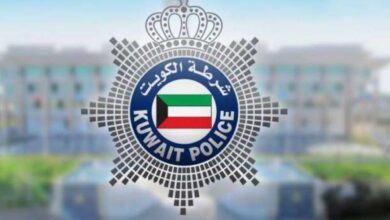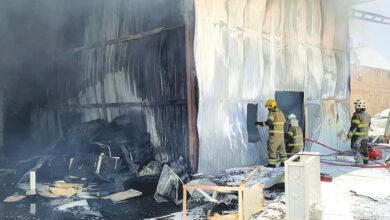Revised Anti-Narcotics Law set for council approval, says acting PM
Sheikh Fahad Al-Yousef said the committee aims to close gaps in the law and address the growing drug problem, which has worsened due to rising cases, procedural errors, and the acquittal of many offenders, noting the law hadn’t been updated in 42 years.

• The draft law aims to include the death penalty for traffickers and facilitators, mandatory drug testing for marriage, driver’s license, and military applicants, penalties for refusals, imprisonment for instigators and those who associate with drug users, and financial rewards for tipsters.
Acting Prime Minister Sheikh Fahad Al-Yousef confirmed that the committee tasked with addressing procedural loopholes in the Anti-Narcotics Law has completed drafting amendments, which will soon be submitted to the Council of Ministers for approval.
In a statement to Arabic daily Al-Jarida, Al-Yousef explained that the committee, led by Counselor Mohammed Al-Duaij and involving relevant sectors, aimed to close gaps in the law and tackle the growing drug problem, which has been exacerbated by increasing drug cases, procedural errors, and the acquittal of many offenders. The law had not been amended in 42 years, highlighting the need to address modern crime methods.
The draft law, which has been sent to the Fatwa and Legislation Department for final drafting, includes key amendments such as the introduction of the death penalty for drug trafficking and a fine of two million dinars. This penalty applies to those trafficking drugs into prisons, exploiting their position for trafficking, or distributing drugs without compensation.
Other amendments include mandatory drug testing for marriage, driver’s license, and public sector job applicants, along with random testing for military personnel and students. The draft law also imposes up to four years in prison for refusing testing, except for marriage applicants and students, and grants police immediate arrest authority for suspected drug users.
Additionally, the amendments include a three-year prison sentence for anyone found sitting with drug users, inciting drug use, or coercing someone into using drugs. Doctors who prescribe psychotropic drugs without justification face three years in prison, and pharmacies could be fined up to 100,000 dinars for mishandling substances.
The draft also offers financial rewards for reporting drug users and imposes fines for promoting drug use through clothing or publications.
The most notable amendments to the law were:
- Establishing the Supreme Council for Combating Narcotics and Psychotropic Substances, headed by the Prime Minister. The Council will submit a report at the end of each year to His Highness the Amir, informing him of the visions and developments related to the Council’s work.
- Death penalty for trafficking in narcotics and psychotropic substances, with a fine of up to two million dinars; previously, the penalty for trafficking in psychotropic substances could reach only seven years.
- Adding a drug and psychotropic substance screening test for those about to marry, those applying for driving licenses, weapons licenses, and those applying for public jobs.
- Random testing of all military personnel, regardless of their rank, in the Ministry of Interior, Ministry of Defense, National Guard, and the General Fire Force to detect drug and psychotropic substance abusers.
- Random testing of all school, institute, and university students to detect drug and psychotropic substance abusers.
- Imprisonment for up to four years for anyone who refuses to undergo the examination without justification, except marriage applicants and students.
- Tightening penalties for drug use in prisons, schools, or health clubs.
- Tightening penalties for any accused person who commits a crime of violence or harm while under the influence of drugs or psychotropic substances.
- Giving the police the right to make immediate arrests in case of suspected drug use.
- Imprisonment for three years for anyone who sits with drug users, even if they do not use drugs themselves.
- Imprisonment for three years for anyone who incites another to use drugs or encourages them to do so.
- Imprisonment for 15 years for anyone who coerces another person or gives them narcotic or psychotropic substances without their knowledge, with the death penalty if a conviction is issued against the victim.
- Three years’ imprisonment for any doctor who prescribes psychotropic substances without medical justification.
- Pharmacies shall be fined up to one hundred thousand dinars if they neglect to store psychotropic substances. The court may close the violating pharmacy for up to five years.
- Death penalty for anyone who traffics in drugs within the prison, and the same penalty shall apply to anyone who facilitates or contributes to bringing drugs into the prison.
- Death penalty for any employee who exploits their position to traffic in drugs or psychotropic substances.
- Death penalty for anyone who distributes narcotic or psychotropic substances to two or more people without compensation, for the purpose of consumption or promotion.
- Death penalty for anyone who requests a service or benefit, whether legal or illegal, in exchange for delivering a narcotic or psychotropic substance to another person for use, or merely based on a promise to do so to themselves or others.
- Confidentially reporting drug users via modern electronic means and forcibly placing them in a rehabilitation center for up to six months.
- Criminal proceedings shall not be initiated against anyone who voluntarily applies for addiction treatment.
- The Minister of Health has the right to suspend any doctor from work if they violate the regulations for dealing with narcotic or psychotropic substances.
- A financial reward for anyone who reports or provides information about drug users.
- A fine shall be imposed on anyone wearing clothing or carrying publications that encourage the use of drugs or psychotropic substances.
- All judgments issued in drug cases shall be subject to immediate enforcement.














